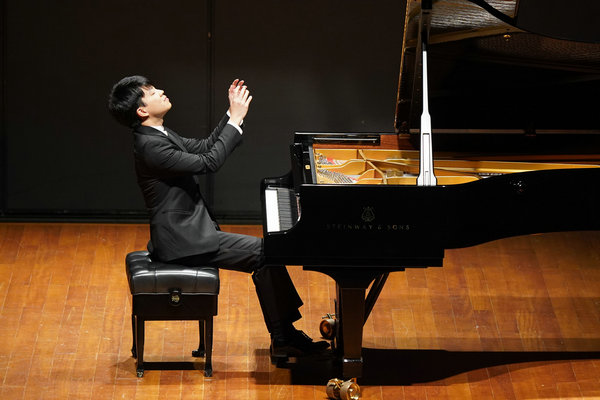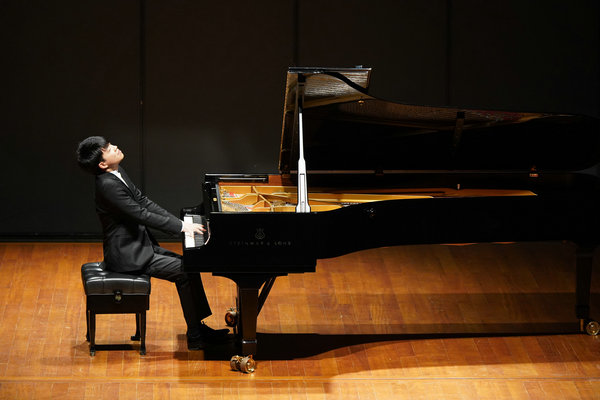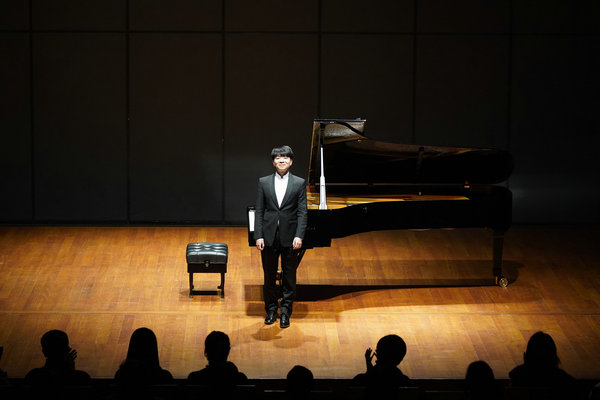

Pianist, composer and organist Kit Armstrong made his debut at the National Centre for the Performing Arts in Beijing with five recitals in three days from Friday to Sunday, featuring pieces from Bach to Mozart, from Beethoven to Rachmaninoff.
He also performed works he composed.
The recitals were named under the theme: Five Centuries of Piano Music.
"When I prepared for the programs, I wanted to present music works that I enjoy very much, which is very personal. Some music pieces may not be very well-known among the listeners," said Armstrong at the NCPA in Beijing on Wednesday.
The soft-spoken young man also added that it's very exciting to share his music choices with the audiences in Beijing because usually recitals are held just once at night rather than five recitals within three days.

The pianist, a prodigy, who was born in 1992 in Los Angeles, started studying composition at Chapman University and physics at California State University, later chemistry and mathematics at the University of Pennsylvania and mathematics at Imperial College London. He earned a bachelor's degree in music at the Royal Academy of Music in London and a master's degree in pure mathematics at the University of Paris VI. Austrian pianist Alfred Brendel has guided Armstrong as teacher and mentor since 2005.
In a documentary about Armstrong, Brendel explains that as his performance career drawing to a close, he took on Armstrong as pupil because he was just "so extraordinary".
His mother, an economist, recounted in the documentary that when Armstrong was sent to a piano school near home, the teacher told her that her son "doesn't belong here" and how Armstrong simply taught himself composition by reading an encyclopedia at the age of 5.
"I've always been interested in many things. Thanks to my family, who are mostly working in the field of science, I was not pushed to do or learn anything as a child," he says. "I've never tried to specialize. But the concerts keep me excited. I need them to renew my great love of music."
With his Asian background, Armstrong says that he is inspired by traditional Chinese paintings and loves going to exhibitions of traditional Chinese paintings. One of his own compositions, Painting Etude, reflects his love of traditional Chinese paintings, which was played during the recitals in Beijing.
